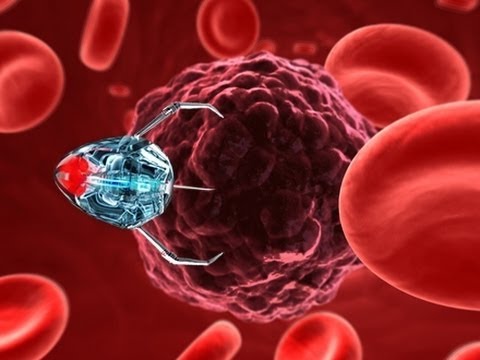HEALTHCARE AND THE USE OF NANOTECHNOLOGY IN MEDICAL APPLICATIONS
HEALTHCARE AND THE USE OF NANOTECHNOLOGY IN MEDICAL APPLICATIONS

The ageing population, the high expectations for better quality of life and the changing lifestyle of European society call for improved, more efficient and affordable health care.
Nanotechnology can offer impressive resolutions, when applied to medical challenges like cancer, diabetes, Parkinson's or Alzheimer's disease, cardiovascular problems, inflammatory or infectious diseases.
Experts of the highest level from industry, research centers and academia convened to prepare the present vision regarding future research priorities in NanoMedicine. A key conclusion was the recommendation to set up a European Technology Platform on NanoMedicine designed to strengthen Europe's competitive position and improve the quality of life and health care of its citizens. This article has been extracted from the vision paper “European Technology Platform on NanoMedicine - Nanotechnology for Health” produced by the European Commission.
NanoMedicine: The Bigger Picture
Future techniques in medical diagnosis and treatment have often been the subject of science fiction literature and cinema. What was once the stuff of science fiction is now closer to becoming reality. Nature operates at the nanoscale, and today we are acquiring an increasingly profound understanding of natural processes at this scale, enabled by a new generation of scientific instruments. From this knowledge, we are able to design devices that can either directly interact with, or influence, the behaviour of living cells. As with any nascent and rapidly developing field, there are research, technological, and ethical challenges to be considered, and the approaches to these constitute an integral part of the vision.
Nanotechnology has a trump card to play when applied to medicine. At the nanometre scale, materials often exhibit surprisingly different physical, chemical and biological properties, compared to the very same material in bulk form. The properties of nanoparticles, such as increased chemical activity and the ability to cross tissue barriers, are leading to new drug targeting and delivery techniques. In the future, a nanoparticle or a set of nanoparticles may be designed to search for, find and destroy a single diseased cell, taking us even closer to realising the ultimate goal of disease prevention.
Nanotechnology is also making possible the stimulation of the body’s own mechanisms to successfully repair diseased or damaged tissues, replacing the need for transplants and artificial organs. In the foreseeable future, nanotechnology as applied to medicine, will lead to advancement in remote monitoring and care, where a patient may be treated at home - a less expensive option, and one that is more conducive to a successful medical outcome than treatment in a surgery or hospital.
Continued research into disease processes at the molecular level is essential for the development of NanoMedicine, and involves teams of scientists from across ‘conventional’ disciplines, such as physics, chemistry, surgery and mathematics, as well as those from the ‘new’ fields of genomics, proteomics, metabolomics, pharmacokinetic modelling and microscope design.
Europe has already established key strengths in those nanomedical technologies which will form the basis of some future medical breakthroughs. The European Technology Platform on NanoMedicine will bring together the key stakeholders to ensure this lead is maintained, and that technologies are quickly developed to address the health needs of its citizens.
Liquid Nano Curcumin OIC is available in large pharmacies in Vietnam. Please contact our Customer Service Hotline at 1900636913 or access DISTRIBUTION CHANNELS to receive information of the nearest pharmacy.
The product is not a medicine and cannot replace medicines
The most-read articles
- HEALTHCARE AND THE USE OF NANOTECHNOLOGY IN MEDICAL APPLICATIONS
- HOME REMEDIES FOR A STOMACH ULCER
- GALLBLADDER DISEASE
- TRY TURMERIC FOR QUICK RELIEF FROM A SORE THROAT
- Pycnogenol
- THE BEST THINGS TO KNOW ABOUT THE ALOE VERA PLANT
- RESULTS OF SCIENTIFIC RESEARCH ON LIQUID NANO CURCUMIN OIC
- NANOTECHNOLOGY IN COSMETICS
- OESOPHAGEAL CANCER
- GOUT: SYMPTOMS, CAUSES, AND TREATMENT
Send your question



